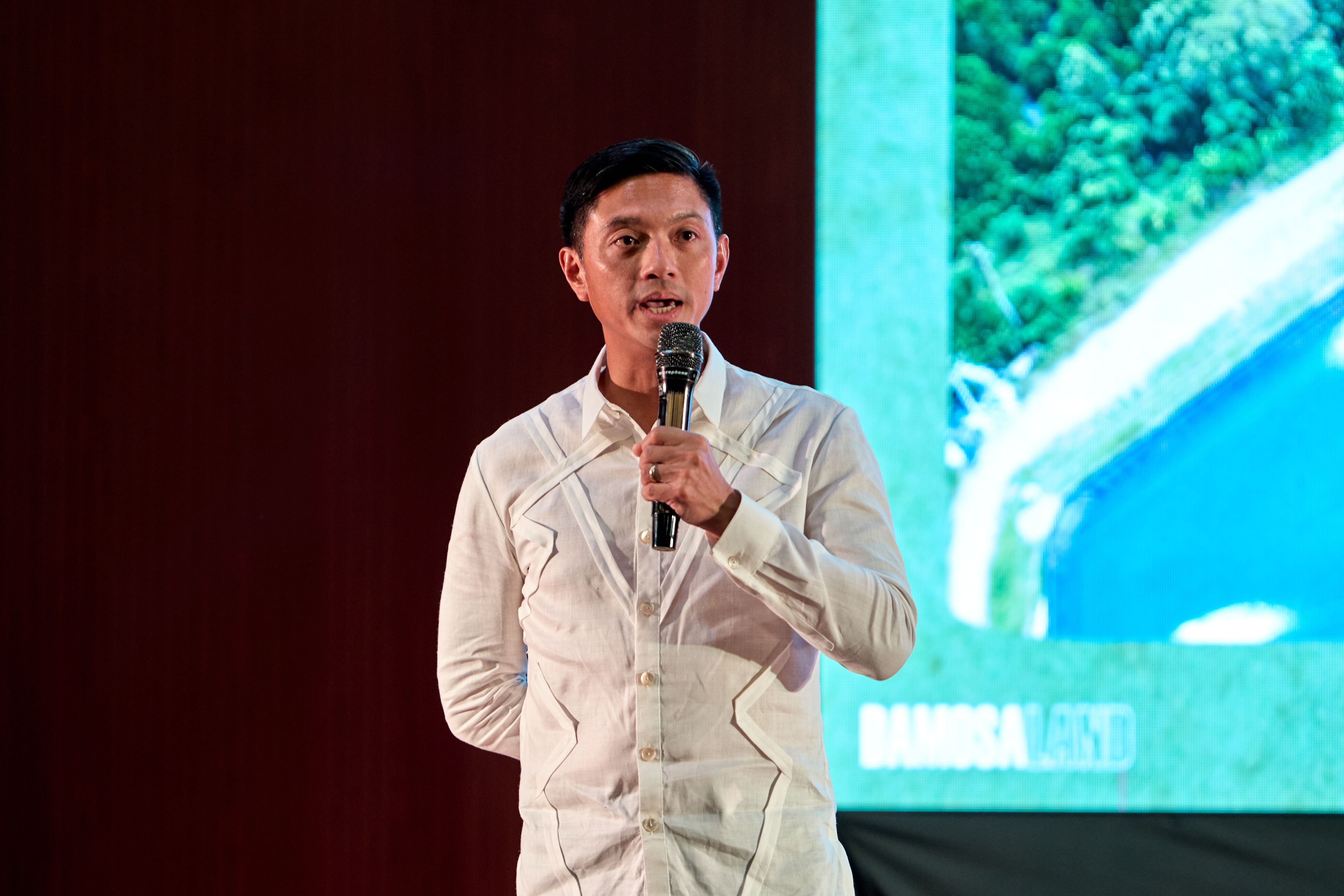Damosa Land leads the way to sustainability
It is not easy to be green, but Damosa Land knows how to do it
For Damosa Land, Inc. (DLI), the real estate developer under the Anflo Group of Companies, adopting green initiatives in their businesses poses a challenge. “We consider ourselves a full-scale real estate developer. We are in several real estate properties, from residential developments to commercial office towers. We are in tourism. We built townships and even industrial parks. From sustainable developers, it is not easy to be green but there are ways to do it,” said Ricardo Floirendo Lagdameo, DLI president.
By integrating green solutions into every facet of its operations, DLI aspires to lead the way in creating a balanced and sustainable future for its communities.

In embracing environmental stewardship, DLI integrates sustainability in a three-way approach: sustainable construction, sustainable business, and sustainable communities.
Sustainable construction
DLI develops green buildings through innovative strategies that contribute to creating eco-conscious and efficient communities. As a model for developers, Lagdameo cited Damosa Diamond Tower, the first green building in Mindanao as certified by EDGE and BERDE.
He also encourages developers to use solar panels to reduce their dependence on conventional energy. “By putting solar panels on our cold storage facility, we were able to reduce expenses by 30 to 40 percent,” said Lagdameo.
In building green communities, the real estate developer designs special resilient homes with eco-conscious practices for the health and wellness of residents. These houses are constructed to bring in natural light and good airflow. The property also encourages urban or vertical farming to produce fresh produce, saving on transport costs for deliveries.

Sustainable Businesses
At DLI, local agriculture meets the needs of the export market as part of their sustainability strategy; supporting farming communities and contributing to long-term economic growth. Lagdameo shared, “In our case, by still being in Mindanao, the heart of agribusiness and agriculture, we have been able to attract a lot of factories and locators that use a lot of agricultural inputs for their business.”
As a locator, Head Sports, the world’s biggest tennis ball manufacturer, recently started operations and sources rubber from local farms. “On a fully operational basis, this factory will be producing 168 trillion tennis balls a year. Thousands of hectares of rubber plantation will be needed to sustain this operation. Hence, we would like to call this a sustainable business,” said Lagdameo.
He also cited the factories that produce banana chips, frozen turon, and frozen saba for export. Top banana producer Davao farms supply the raw materials for production.
Sustainable Communities
To build sustainable communities, DLI provides opportunities that cultivate holistic growth and inclusivity. “We don’t just focus on materials or construction, we focus on the people and the communities where we operate. Since agribusiness is our number one business, it is in our DNA that we are farmers, we are agriculturists, so in our residential projects, we try to incorporate farming concepts by having community farms. We encourage our buyers to put farms in their backyards to help reduce the logistics to bring produce into their homes.” In addition, the urban farming initiative enhances food security and promotes environmental stewardship among its residents.
Notably, shrimp farming within the Agriya township in Davao del Norte is one of DLI’s pioneering initiatives. This project produces fresh catch for the residents and the region and aims to bolster food security by ensuring readily available resources.
DLI promotes recycling within the community by educating residents about proper waste management and circular economy. One of the practices Lagdameo shared was the collection of used water bottles turned into currency. “You can bring your water bottles instead of paying a fee to enter our events. You can give us water bottles and of course, we recycle them. It’s a small initiative but again it’s about educating what circular economy is all about.”
To develop human resources and elevate education in agriculture, Anflo Management and Investment Corp. (Anflocor) and UP Las Banos partnered to build an agricultural campus in the premier integrated township Agriya in Panabo City, Davao del Norte. Set to offer 14 graduate and post-graduate agriculture-focused programs, including Agribusiness Management, Agroforestry, and Animal Science, among others, the University of the Philippines Professional School for Agriculture and the Environment (UP PSAE) is scheduled to operate in the first or second quarter of 2026.
Lagdameo also shared community-building activities that celebrate culture, build community engagement, and promote the appreciation of the arts. “We try to use our spaces for different purposes. We do a lot of wellness activities in our buildings and promote the arts and the local artists. In a lot of ways, it has become sustainable because we don’t have to build another art gallery, we just make use of our beautiful buildings that are already there.”
“At Damosa Land, we strive to build innovative, resilient communities that respect and nurture the environment, championing eco-conscious practices that ensure the well-being of future generations. Our commitment is sustainability for Mindanao, for the community, and for future developers, whom we hope to keep sustainability at the forefront,” Lagdameo added.
The Manila Bulletin Sustainability Forum 2024 was held in cooperation with Ayala Corporation, ICTSI, Bank of the Philippine Islands, Arthaland, Aboitiz Power, Development Bank of the Philippines, Wilcon Depot Inc., SM Investments Corporation, RLC Residences, Ayala Land Inc., The Ascott Limited, ACEN, Damosa Land Inc., Filinvest City, Megaworld Corporation, International Finance Corporation, and the University of the Philippines.